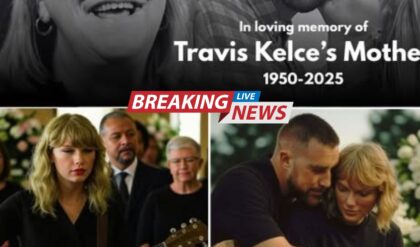My name is James. I’m David Pierce — the oldest child, first to leave home, first to earn a steady paycheck.
If you asked my family, they’d call me “the responsible one.”
If you asked me, I’d say I’m the background man — helpful, unobtrusive, the guy who holds the ladder while everyone else climbs.
My younger sister, Lily, is the golden one. Different rules, different tone of voice. Same house, two worlds.
When we were kids, I did chores for money. She got surprise gifts “for doing her best.”
In high school, I bought my own used laptop with tips from bussing tables.
She got a new phone “for safety.”
That pattern never ended. It just learned bigger numbers and better excuses.
I work in operations for a multinational logistics firm. It’s not glamorous, but it’s reliable. I like figures that add up, invoices that balance, and calendars that actually make sense.
My life fits in a spreadsheet.
My family lives in a group chat.
The last Sunday dinner I went to was a month ago.
Mom had a roast in the oven, Dad’s game was on mute, and Lily came twenty minutes late in a sweater that probably cost a car payment.
She kissed Mom’s cheek, sat down, and immediately asked, “Do we have lemon water or just regular?”
I was chopping parsley.
“Sink works,” I said.
She made a face like I’d told her to drink from a puddle.
Aunt Clare leaned over. “James, you’re not still renting, are you? That’s just throwing money away.”
“I’m working on it,” I said.
Mom didn’t look up from basting. “He likes to be cautious,” she said, tapping the oven door. “He’s fine. Our planner. He’s comfortable. He’s not like Lily — she’s creative. She’s meant for more.”
Lily tucked her chin into her hand and smiled that closed-lip smile that belonged in a magazine ad.
“I’m figuring things out,” she said. “It’s a journey.”
I kept chopping. Dad turned up the volume for a replay and said, “James, grab the check when it comes. I forgot my wallet in the car.”
Everyone laughed. It was an easy joke, because it was always true. Of course, I’d pay. I always pay.
Later, in the living room, I told Mom I was thinking about taking a short-term assignment overseas.
“Six months,” I said. “Maybe a year.”
She waved me off. “Sweetie, that’s not practical. Your sister needs you right now.”
“What does that mean?”
“Don’t be defensive,” she said. “You know how Lily is. She just needs a little runway.”
Lily walked in, looked at her reflection in the TV screen, and said softly, “You’ll understand when you learn to let go.”
Something small and old shifted in my chest. Not anger — just that heavy, familiar ache you mistake for love because it started in the same house.
Money requests always started small.
“Put it on your card, we’ll pay you back.”
The first time, it was the family phone plan.
“Just one year,” Mom said.
Then Netflix. Then car insurance “for now.”
I told myself it was fine. I could afford it. It kept the peace.
After college, I stayed home two years to help while Dad’s hours got cut. I paid half the mortgage “temporarily.”
Temporary became permanent.
When I moved out, I left my name on their power bill because it was on autopay. “We’ll switch it next month,” Mom said.
Birthdays, knees, and next months kept coming.
I had a list on my phone — dates, amounts, confirmation numbers. It looked like a normal person’s Notes app, except every line was a small rescue.
Meanwhile, Lily kept trying things — a bakery internship, a travel blog, a wellness coaching certificate she never finished.
I loaned her $500 for “books,” $900 for a deposit, $1,500 when her car broke down (my fault, apparently, because I’d borrowed it once).
In my notes, I marked the loans that would never come back with two stars.
She called money “energy.”
I called it rent.
Whenever I sent a Venmo request — “Hey, can you take care of this this week?” — she’d reply with a heart emoji and no money.
“Don’t be transactional,” she’d say. “It’s gross.”
Dad’s motto was always, “Family is family. It evens out.”
It didn’t.
It just got cleaner — the requests more polished.
Mom would text: “It’s easier if one person handles the payments.”
She once sent me a photo of the water bill, circled my old account number in blue ink, and wrote: “You’re organized. We’ll get you next time.”
I’m not a saint. I’m not a martyr. I’m just someone who can do math.
Helping was easier than refusing. It was like keeping a porch light on for people who never came home.
Last winter, my company offered me a rotation in our Dublin office — a year, with housing, travel expenses, and a raise.
It was everything I’d said I wanted.
When I told Mom, she said, “We’ll talk after Lily figures out her next step.”
That “next step” was moving in with her boyfriend Ryan, getting a dog, and quitting her job because “the environment was toxic.”
By May, my group chat was full of memes about capitalism and landlords. I muted it and went for a walk.
By June, I’d already chipped in three times — the phone bill, car insurance, vet bills for the dog, Daisy.
$250 here, $380 there. The numbers felt light until they started stacking.
Then came the big one.
Mom slid a white binder across the table one night like it was a college brochure.
“Lily’s opening a studio,” she said. “She just needs a guarantor to get better loan terms.”
“A guarantor,” I repeated.
Dad cleared his throat. “It’s just your name. It shows faith.”
“It also shows liability,” I said.
Lily twirled her hair. “It’s not that deep.”
“It’s exactly that deep,” I said. “$120,000 deep.”
Mom smiled tight. “It’s an investment in the family. We’d do it for you.”
They wouldn’t. They never had.
I closed the binder and pushed it back.
“Lily, I love you,” I said. “But no.”
She rolled her eyes like I’d refused to share fries. “Wow. You’re really tight.”
That night, Mom called crying. Dad didn’t.
Aunt Clare left a voicemail about “abundance.”
Lily posted an Instagram story about “financial abuse” and “siblings who hoard wealth.”
Ryan sent me a thumbs-down emoji.
I stared at the ceiling fan spinning slow circles in the dark.
The Dublin offer was still open in my inbox, like a door cracked wide enough for air to slip through.
Then came the follow-up message I’d been waiting for.
Wednesday, 8:12 a.m.
I was brushing my teeth when my phone buzzed.
Lily: “I’m quitting today. I can’t handle the stress anymore. You’ll help us while I figure things out.”
No question mark. No hesitation. Just certainty.
I rinsed my mouth, looked in the mirror, and typed back:
Me: “Not my problem.”
I hit send. My hands didn’t shake.
Less than a minute later, Mom texted:
“CALL ME.”
Then Lily:
“Are you serious?”
Then Ryan:
“Bro.”
I scrolled down to the Dublin email, hit Accept, and booked my flight.
Two hours later, Mom sent another message in all caps:
“BANNED FROM THANKSGIVING UNTIL YOU SIGN YOUR SISTER’S LOAN.”
Eighty-eight minutes after that, I laughed. Quietly, but freely. It was the first real exhale I’d had in years.
Ten minutes later, my phone lit up again — FaceTime from Dad.
I answered.
They were on speaker, standing in the kitchen. My name wasn’t on the fridge calendar behind them.
Mom dove in. “You’ll apologize to your sister. You’ll fix this.”
“No,” I said.
“What do you mean, no?” Her voice rose an octave.
“I mean I won’t support two adults. I won’t co-sign anything. I won’t take on six figures of debt because you’re rewriting reality with emotions.”
Dad leaned in. “Watch your tone.”
“My tone’s calm,” I said. “I told you my answer.”
Lily jumped into the frame, mascara smudged. “You’re so selfish! You’re punishing me for being different!”
“I’m not punishing you,” I said. “I’m setting a boundary.”
“You’ve never believed in me!”
“I believed in you when I bought your books. When I covered your car insurance. When I added you to my phone plan. When I paid the vet bill for your dog. When I went to every launch party you quit before week two.”
She gasped. “Are you keeping score?”
“Yes,” I said, “because I’m the one paying the bill.”
Mom tried a new tactic. “If you walk away now, you’re abandoning this family.”
“I’m leaving for work,” I said, “not revenge.”
Dad scoffed. “You think you’re better than us.”
Lily shouted through tears, “You’re just bitter!”
I straightened, voice steady. “This isn’t revenge. It’s closure. I’m not your plan anymore.”
Silence.
Then Dad laughed — that cruel, smug laugh he used when he thought he’d won.
“What are you closing, huh? From doing your part?”
“From being your solution,” I said. “From being your silent bailout.”
They all started yelling at once — Mom blaming, Dad shouting, Lily crying.
I didn’t raise my voice. I just repeated, calmly:
“I am not your guarantor. I am not your paycheck. I am not your emergency fund.”
Dad jabbed his finger at the screen. “You’ll regret this.”
“I already regret not doing it sooner,” I said, and ended the call.
After that, I started untying ropes.
That night, I froze their phone lines, deleted Lily from my insurance, removed Mom’s streaming logins, turned off autopay for every bill tied to my name, transferred my savings to a new bank, and shut down joint credit lines.
By the end, there were thirty-seven missed calls, voicemails full of guilt and rage, and one from Aunt Clare whispering, “You’re doing the right thing, sweetheart.”
I didn’t reply.
The next morning, fifty-eight missed calls. One hundred forty-two texts.
Mom posted a meme about “ungrateful children.”
Lily posted a photo of her dog with a quote about “safety.”
Dad texted “coward.”
I replied with one word: “Limits.”
He wrote back: “You think words protect you?”
I answered: “Policies do.”
Then I shut off my phone, packed my bags, and printed my flight confirmation.
Monday, 7:35 a.m., Dublin.
Gray sky, corporate apartment, kettle on the stove.
Five bills with only my name. No group chat. No crisis. Just quiet.
Halfway through my first week, my credit app sent a notification:
“New inquiry blocked.”
I smiled.
Lily texted a turkey emoji.
“Are you happy?”
I replied: “I hope you find what you’re looking for. I just can’t afford the search.”
She didn’t respond.
On Thanksgiving, I roasted a small chicken, potatoes, and green beans.
A friend named Mike held up his pizza on video chat.
We laughed.
After dinner, I opened the notes app on my phone — the one that used to hold years of amounts and rescues — and wrote this at the bottom:
I won’t co-sign chaos.
I won’t call neglect “help.”
I won’t trade peace for access.
I won’t apologize for keeping what I earn.
And I won’t be the plan.
One more thing:
I’ll love you — just not by paying for you.
Because love isn’t a transaction.
It’s a door you eventually stop holding open.
Now, I eat everything I cook.
I answer only when I want to.
I save. I sleep.
This was never about revenge.
It was about not confusing being needed with being loved.
It was about realizing I’m not a wallet with feelings.
It was about finally closing the account they all kept open in my name.
And this time, it stayed closed.





